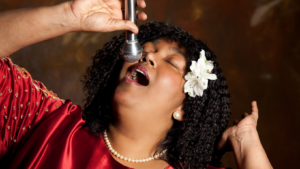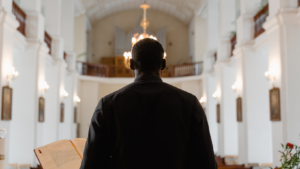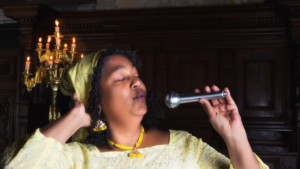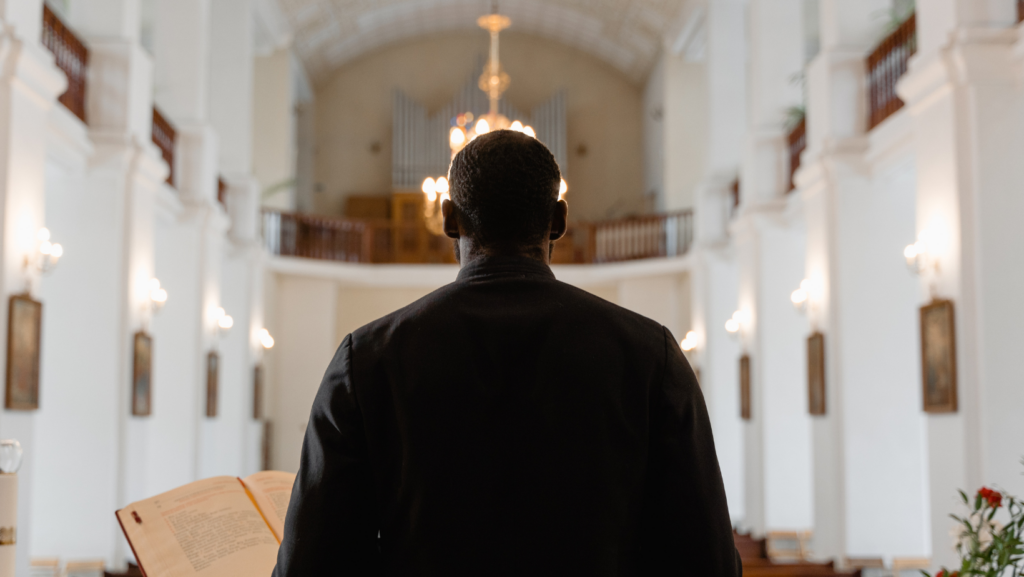Nigerian gospel music has emerged as a powerful force in the global music scene, captivating audiences with its vibrant rhythms and soulful melodies. Its appeal lies in its ability to uplift and inspire, offering messages of hope and faith that transcend borders. Artists like Sinach, Nathaniel Bassey, and Mercy Chinwo have gained international acclaim, drawing listeners with their powerful vocals and heartfelt lyrics. As they share their stories and spirituality through music, these artists foster a sense of unity and community among diverse audiences. Their impact demonstrates the universal language of music and its power to bring people together.
Nigerian Gospel Music
 Nigerian gospel music has transformed significantly from its inception to the modern era. This evolution reflects both deep historical roots and various modern influences.
Nigerian gospel music has transformed significantly from its inception to the modern era. This evolution reflects both deep historical roots and various modern influences.
Nigerian gospel music’s origins trace back to traditional African rhythms and indigenous sounds. In the early 20th century, Christian hymns introduced by missionaries merged with local music forms. These hymns adapted to native languages, such as Yoruba and Igbo, creating unique worship experiences. Iconic figures like Ikoli Harcourt Whyte contributed to the genre’s growth by composing hymns in local dialects. This fusion laid the foundation for contemporary gospel sounds, deeply embedding cultural identity.
Modern Influences
In recent decades, Nigerian gospel music has embraced global music trends, incorporating elements of jazz, rock, and hip-hop. This fusion is evident in artists like Sinach and Frank Edwards, who blend Western genres with traditional gospel. The rise of digital platforms has further propelled the genre, enabling artists to reach international audiences quickly. Collaborations with foreign artists have expanded its appeal and influence on the global stage.
Popular Nigerian Gospel Artists
 Nigerian gospel music showcases a rich tapestry of artists who have significantly influenced the genre globally. Both legendary figures and emerging talents contribute to its vibrant landscape.
Nigerian gospel music showcases a rich tapestry of artists who have significantly influenced the genre globally. Both legendary figures and emerging talents contribute to its vibrant landscape.
Sinach, whose full name is Osinachi Kalu, stands as a powerhouse in Nigerian gospel music. With hits like “Way Maker,” her music reaches audiences worldwide. Nathaniel Bassey combines jazz and gospel influences in songs such as “Imela,” captivating listeners with his trumpet and vocal prowess. Mercy Chinwo, known for “Excess Love,” has a dynamic stage presence that endears her to diverse audiences. Frank Edwards blends contemporary Christian and African music, producing soulful tracks like “You Are Good.” These artists paved the way for future generations with their impactful music.
Emerging Talents
The genre also thrives through emerging talents leaving their unique mark. Dunsin Oyekan, a songwriter and worship leader, creates profound spiritual experiences with songs like “Fragrance to Fire.” Moses Bliss garners attention with the hit “Too Faithful,” showcasing innovation within contemporary gospel. Ada Ehi blends traditional gospel with pop rhythms, exemplified in her track “Congratulations.” Judikay’s powerful vocals and heartfelt lyrics shine in songs like “Capable God.” These new voices continue to elevate Nigerian gospel music, ensuring its resonance and relevance.
Unique Characteristics of Nigerian Gospel Music
 Nigerian gospel music captivates listeners with its distinctive blend of traditional and modern elements. The unique characteristics of this genre stem from its rich cultural heritage and evolving influences.
Nigerian gospel music captivates listeners with its distinctive blend of traditional and modern elements. The unique characteristics of this genre stem from its rich cultural heritage and evolving influences.
Nigerian gospel music features a vibrant fusion of rhythms and melodies rooted in African tradition. Artists incorporate indigenous drum patterns like talking drums and bata, creating syncopated rhythms that energize performances. Melodies often use pentatonic scales common in Yoruba, Igbo, and Hausa music, providing an unforgettable auditory experience. These elements, combined with western instruments like keyboards and guitars, produce a sound that’s both familiar and innovative.
Lyrical Themes
The lyrics in Nigerian gospel music express messages of hope, faith, and redemption. They draw heavily on biblical themes, often written in both English and native languages to reach diverse audiences. This bilingual approach allows broader emotional and spiritual resonance. Songs like “Imela” by Nathaniel Bassey highlight gratitude and divine praise, reflecting deeply personal spiritual journeys. This blend of lyrical depth and accessibility underscores the genre’s power to uplift and inspire.

